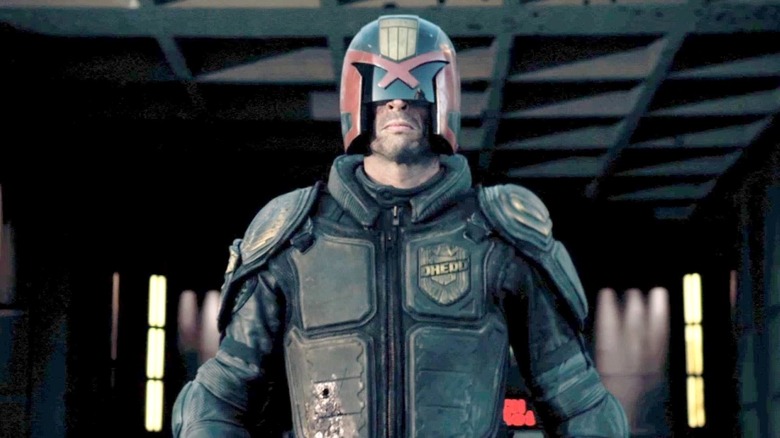
We love dystopias. There's something shuddery and intriguing about exploring a world that's a lot like ours, but there's something wrong with it. We fall to the allure of it. Sure, this brave new world is terrible, but how cool would it be to survive? Maybe even become a hero? And for many of our favorite dystopian stories, survivability feels possible — at least for a while. These scenarios borrow from today and hold warnings about what tomorrow could be unless we act. We feel prepared by watching them. We feel, for a little while, empowered.
The reality of living in these worlds could be much worse than we want to believe. In a post-apocalyptic world, where are you going to get your prescription lenses or your life-saving medications? Clean water is scarce in many of these nightmare scenarios. Famine might drive us to horrible acts. Other scenarios seem cool, but would you be allowed to even exist? These stories are about people's extraordinary efforts to thrive, and sometimes they fail. Let's explore some of our favorite dystopias and imagine what it would be like to try and live in them.
Ghost In The Shell
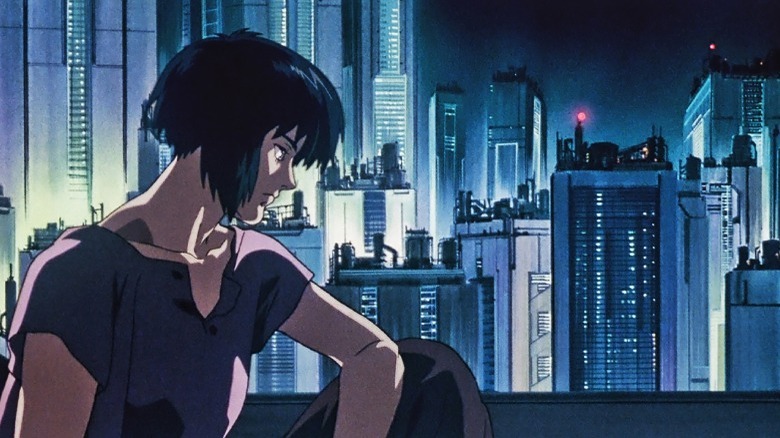
Cyberpunk is often about individuality thriving within the concrete structures of society. Body modification is a new method of self-expression, a technological evolution that stretches our capabilities, even as authority uses it to suppress. "Ghost in the Shell" is about all of that and more. Its sleek chrome future sees us inhabiting upgraded cyborg bodies if we choose. That sounds pretty cool, even considering the dangers. The new police state is more sprawling than ever, and hackers are capable of invading and destroying our rewired minds.
That coolness could wear off quickly for many of us. Major Kusanagi isn't a standard cyborg. She's rocking a top-of-the-line bod, a Megatech Class-A. That's far out of reach for most people. Most people are barely going to afford lower-class bodies, while body mods and upgrades are more common. We might get a handful of upgrades subsidized by our employers, like Batou's cybernetic eyes. Add in the aforementioned police state and the rise of terrorism, and everyday life will always be under stress. This vision of Japan is still rad as hell, though, and the risks might be worth it, assuming your upgrades stay under warranty.
Moon
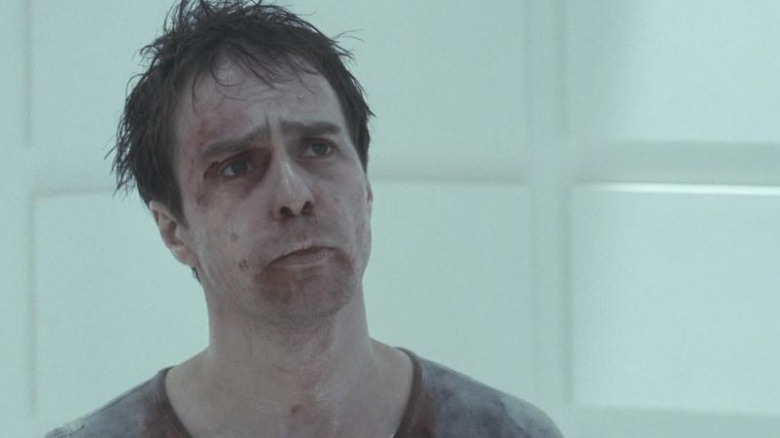
There are two aspects to society in Duncan Jones' feature debut, "Moon." We mostly see one: Sam Bell's (Sam Rockwell) lonely life as a mining facility operator on the moon. Earth seems to be doing okay, although Jones' later film, "Mute," shows off a grungy neon cityscape that feels like Berlin's future city planners watched "Blade Runner" but didn't think the logistics all the way through. Still, Sam Bell's family looks like they're all right, suggesting an upgraded middle or lower-class existence is possible.
Yet, Sam still needs a job to survive in this world, and his recruiters shuffle him around until a place called Lunar Industries grants him a contract for a nice, quiet job on the moon — something that feels like a lighthouse gig in space. Until Sam's big whistleblower incident happens, you'd have no idea what he signed up for. Is living in this contractual hell, a piece of you stuck in a cloning rinse-wash-repeat cycle, that much different than a soul-crushing job shucking boxes in the warehouses of one of the biggest corporations in history? At least on the moon, Gerty's not timing your bathroom breaks.
The Running Man
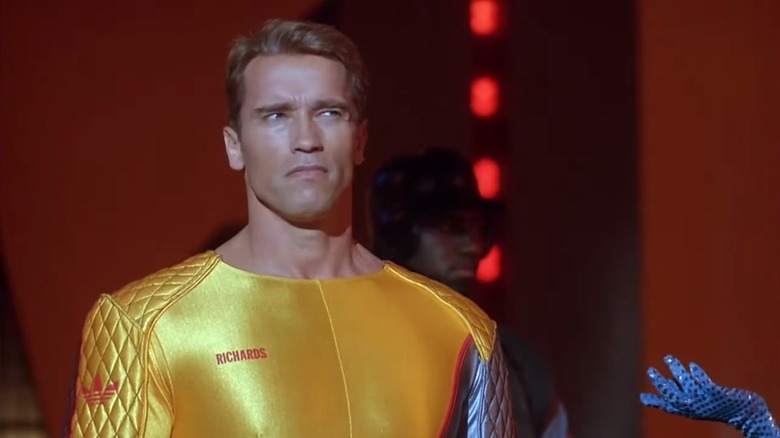
The police state of "The Running Man" is supported by fascist power and a government-supported distraction the Romans called bread and circuses. Civilian uprisings are violently tamped down. If scapegoats are necessary, they'll come from the remaining sympathetic members of the police and military. That's what happens to Ben Richards in the opening minutes of this great cheeseball movie, and it's only because he's Arnold Schwarzenegger that he survives the deadly gladiators game he's pressured to play.
The book the film's based on is even crueler. People are dying from pollution and the hardiest are volunteering for these murder games just to scrape up some cash. Revolution is tough, but at least the movie makes a good push. The reality of living in a world like this? We'd be sick, desperate, and 100 percent running neighborhood gambling rings just to get enough money to buy crappy food. "The Running Man" is too close to reality as it is. Let's try to make sure it doesn't stay that way.
Gattaca
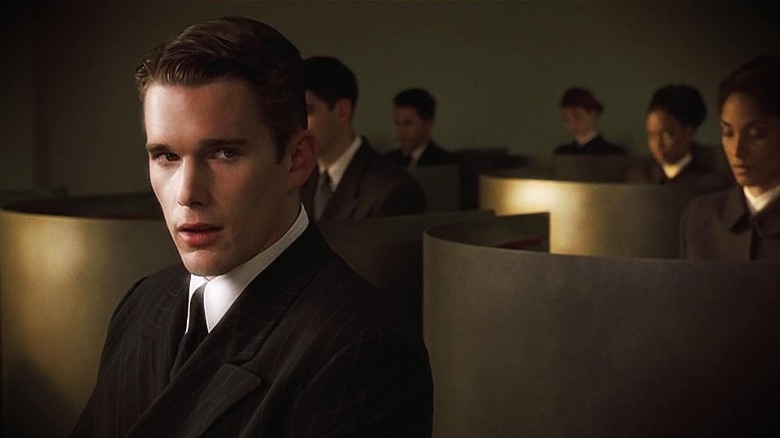
"Gattaca" is already an art piece about how much life in this deceptively beautiful future blows. It blends classism and eugenics into something both callous and as socially relevant as the evening news. The genetically engineered will always get first crack at the best of everything despite laws meant to prevent discrimination against the naturally — and therefore, imperfectly — conceived. These "invalids" get the slop jobs and the crummier housing.
While Ethan Hawke's idealistic invalid, Vincent, overcomes countless obstacles to achieve his dream of becoming an astronaut, that's not realistic for pretty much anyone else. Surviving in this soulless IKEA display would be pretty easy, but most of us today wouldn't even be allowed to be born here. Our smallest flaws would derail any chance we had for a comfortable life, and so many of the people that we love would be tossed aside as mistakes. That's breathtakingly awful to imagine. It's a genocide of what makes us human, flaws and all.
Blade Runner
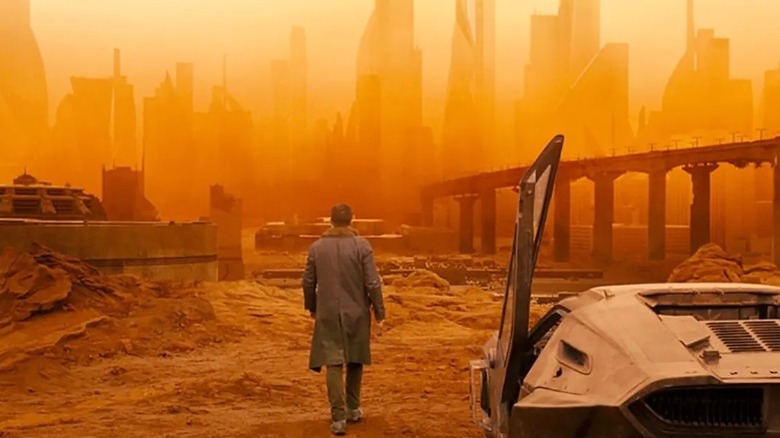
"Blade Runner" codified cyberpunk noir. It's a cool, neon-lit world of sin and synthetic animals. The horizon is marred with digital billboards and corporate towers built like ancient monuments. New opportunities are available in the outer colonies, far from the boundaries of Earth. That sounds rad, and it looks sweet as heck. It's hard to fault anyone for wanting to try to make a life there.
Beyond the smog and the near-eternal night is a world ravaged by ecological disaster. We get glimpses of how bad it is in "Blade Runner 2049." In some cuts of "Blade Runner," our major clue was an offhand remark about how unlikely it is for even Tyrell (Joe Turke) to own a real owl. The colonies allow replicants, disposable synthetic humans meant for violent jobs and sex work. They're not allowed on Earth. It's possible to survive here, even thrive if you're comfortable with technology or the cutthroat underworld. The outer colonies are tantalizing. This world is a wreck, possibly irrevocably so. Yet, it could still be loved, and at least being human matters — even if you're more human than human.
Elysium
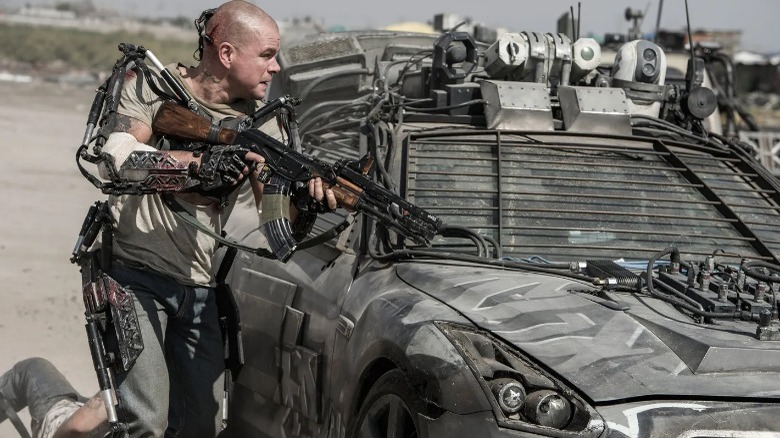
Win the dice roll and you could have an amazing life up on the torus ring of Elysium. It's a paradise built from a real NASA prototype a think tank proposed in the '70s. Neil Blomkamp's "Elysium" presents the dream realized: a perfect Earth colony of luxury with all our needs tended to and our health cared for from the comfort of our Versace med-beds.
Unfortunately, the dice are loaded, and our future selves are vastly more likely to be born in the sprawling mega-slums that have transformed our Earth. If you're not connected to the wealthy and powerful, you're going to work for beans in unsafe facilities, strung along by the lie that you could earn your way up to the stars. That's all too real in America today, but in the future of "Elysium," at least the forgotten Earthbound are unionizing by force. Life here might be hell, and we'd probably die young and broken, but there's a better chance you'll get to pop a rich jerk in their face once we overrun the ring.
Dark City
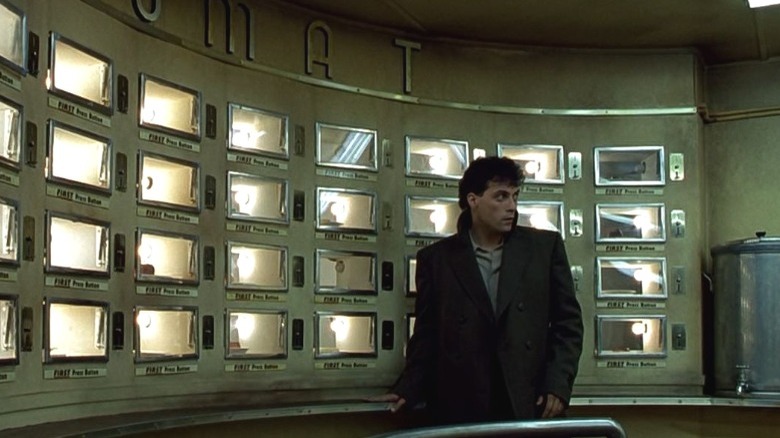
Alex Proyas' "Dark City" draws from the best part of the "Blade Runner" aesthetic and adds smoky rooms and hardboiled mystery. Like its predecessor, it feels like it's always night. In this unnamed city, it is, and the trains never run to the sunny beach its residents crave. Trying to live here is an actual nightmare. You're always vaguely unsure about your reality, and nothing about your life is going to feel stable for long.
In "Dark City," life is a literal rat race. We're lab animals, used by alien Strangers to unlock the riddle of their long-term survival. There's only one glimmer of hope, and that's the abrupt change of power as one man, John (Rufus Sewell), achieves what our captors desire and turns their powers onto themselves. Yet, we're still stranded in this frozen place, and although the return of daylight is welcome, there are no guarantees that our new boss won't gradually become the same as our old, eldritch bosses. And we're never going home to Earth.
Children Of Men
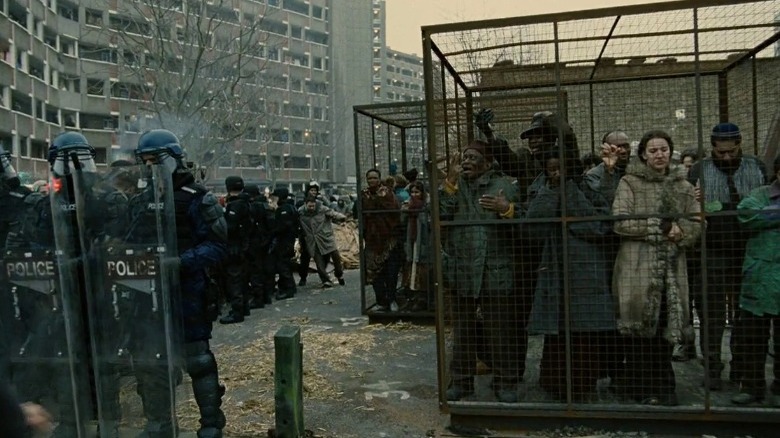
The world of "Children of Men" is ready to fail. The elderly and the infirm of England are incentivized to use the Quietus, a formal, painless method of suicide that leaves a financial boon to the next of kin and eases the resource strain on the country. Immigrants are met with systemic violence. Social psychology is scarred so deeply by human infertility that we treat our beloved fur babies as our only viable replacement for human ones as a method to cope with the imminent end of us all.
We don't see much of what the rest of the world is dealing with as we follow Theo Faron (Clive Owen) and the pro-immigrant faction that's hiding the first pregnant woman in decades. However, the doleful cinematography and the politics of the United Kingdom leave us with clues. The Earth no longer wants us, making this dystopia one we should ever want to live in — if for no other reason but to respect that decision. Resource scarcity and mortal depression feel too real today, and there's little comfort to be found if we had to try to live in this broken London.
Crimes Of The Future
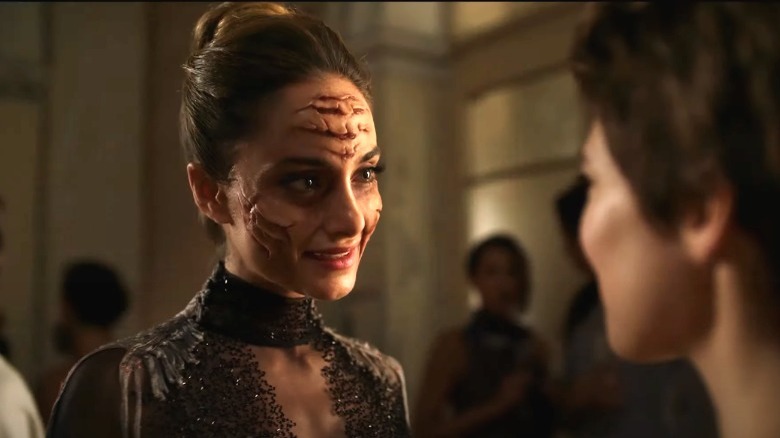
David Cronenberg's tale of flesh evolving into message is as layered as any of his work. "Crimes of the Future" has a convoluted narrative, with multiple stories revolving around performance artist Saul Tenser (Viggo Mortensen). That he's hiding his new alien organs is a secret even his partner doesn't seem to know. Saul traipses his way around an unnamed, ageless city, its beautiful sea has withdrawn, leaving behind the rotting shells of ships.
At its heart, "Crimes of the Future" is a story about humanity rediscovering itself. We've lost our pain and with it, our beauty. The world is fading, but we remain desperate to leave our mark on it. Desperate to matter, we graffiti its walls and tear open our bodies. We need to evolve, but change would leave this world's shady masters weakened, and so they conspire against our new selves. There's little comfort in this world where our furniture recalls the old bones of ourselves. To live here would be to live in agony or in secret like a vampire, doomed to reckon with the plastic disaster that's ruining the world. That's our warning for today, and this isn't a future we need to meet for ourselves.
Snowpiercer
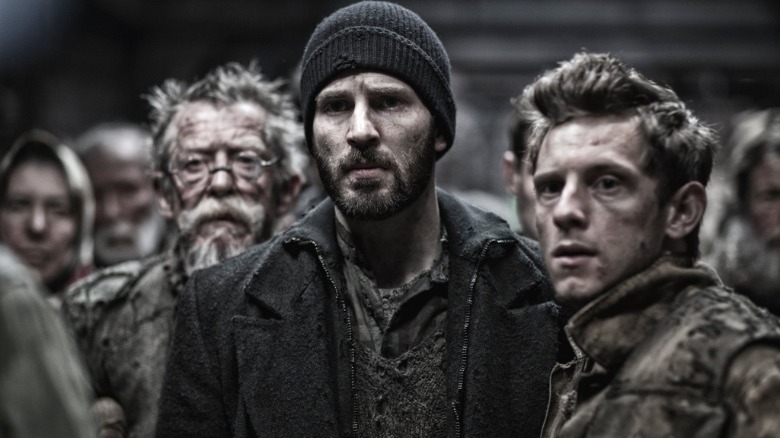
Stylistically similar to Terry Gilliam's "Brazil," "Snowpiercer," directed by Bong Joon-ho, is an adaptation of a French comic that foretells a world of few survivors on a frozen Earth. Society is packed into trains that run ceaselessly across the world. Classism allows the elite to feast on the plight of the poor. If you were trapped in a world like this one, imagine the smell. Even in the forward cars, people smell in closed quarters. Water is at a premium. The stink of the train's oils and electricity will always be in the air.
As in "Elysium," there's a chance you might find yourself among the privileged, but it's far likelier you'll be in the cattle cars. Sure, there's a guy that looks like Chris Evans, but your fate could be as simple as winding up an awful-tasting protein bar for your friends to eat. It's life, of a sort, but it's not desirable. The end of the film suggests that the world beyond the train is healing, and someone with a gift for survivalism and the right gear to keep warm might make it — but to do what? It's going to be decades of hard living and starvation before the first villages thrive.
Total Recall
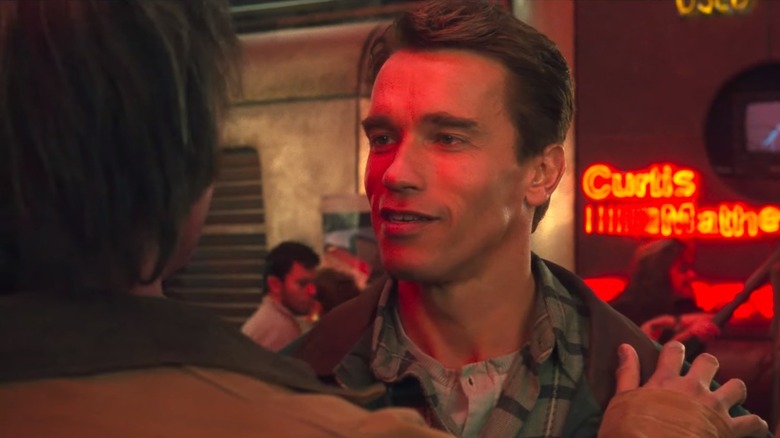
Ah, the ultimate evolution of capitalism — conquering space at the behest of a corporatized government! Boy, it's a good thing today's billionaires don't have these ambitions. In 1990's "Total Recall," a shadowy agency controls much of our space-faring civilization. We've colonized Mars, and its governor doesn't want anything to interfere with his profitable mining operation.
Earth seems like it's returned to having a thriving middle-class, but our only proof of that isn't reliable. Quaid (Arnold Schwarzenegger) lives a great life on a construction worker's salary, but since that's an illusion — maybe — we don't know the truth. And on Mars, unless you're buddies with Cohaagen (Ronny Cox), you're probably living among the impoverished Martians. Don't be lulled by the promise of a cool new mutation, either. An extra breast sounds fun until you've got to go bra shopping, and that's the nicest mutation seen here. You live in a crushing surveillance state, you look less than human, and you're disposable. Even the newly liberated Mars seen at the end is going to undergo decades of turbulence. Good luck if fall through a portal and wind up here.
Mad Max
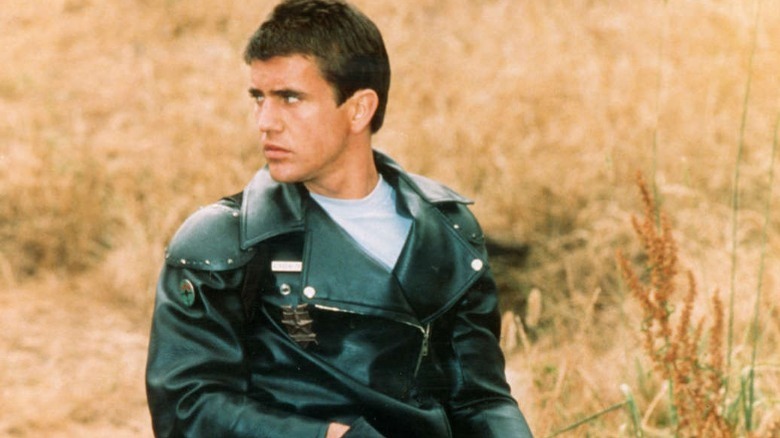
The thing about some doomsday preppers is that they always think they're going to be the ones to survive the collapse of society and come out of it like kings. "Mad Max" is a good lesson about how you're far more likely to end up as roadkill. In a society where it's every person for themselves and there are few reliable methods of subsistence farming or clean water, death is fast and merciless.
Society hasn't completely collapsed in the first "Mad Max," but it's clear the world is as sundered as Max's (Mel Gibson) sanity by the end. Two sequels show the world in even worse straits with wars over gas and small towns led by eccentric tyrants. "Fury Road" depicts the only way to survive in a dead world like this: Find the ones you can trust and fight and die for them to keep the dream alive. Immortan Joe (Hugh Keays-Byrne) warps this ideal. He's a tyrant's dream, but Max (Tom Hardy) finds himself among the women, who are usually disregarded in these apocalypses. With them, there's a new message about nurturing one another. Untrusting dangerous loners die in this world. Together we could survive but not easily. Death will still be close.
Dredd
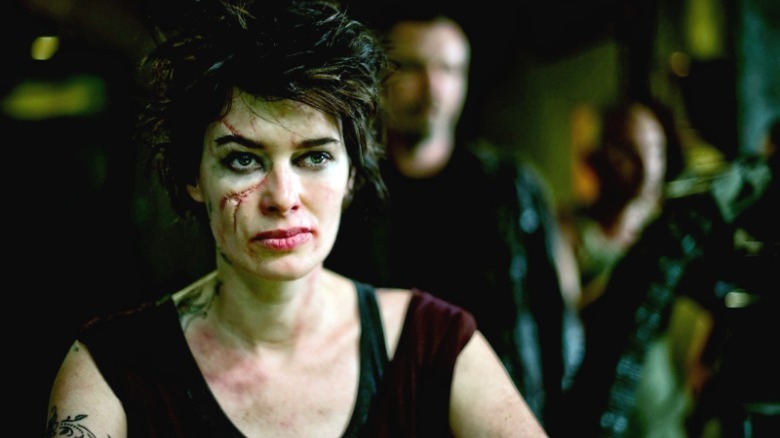
Should fate lead you to Mega-City One, just book it for the irradiated wasteland and get it over with. Life here sucks. Good luck getting into one of the overcrowded high-rise mini-cities. The rent is probably more than its residents can pay, putting them (and you) at the mercy of the landlords. And your landlord is probably running designer drugs out of the penthouse, which means either they're crushing your life under their thumb or a Judge is going to show up and consider you an accomplice because you didn't blow the whistle.
Sure, Dredd (Karl Urban) is a high-functioning robot of a man with a sense of ethics and a single shred of mercy, but corruption runs rampant among his colleagues. A Judge you can trust is up there with Santa Claus. The world-building of this movie isn't clear in how it compares to its comic book counterpart, but consider that there's nothing to say that the nightmarish Judge Death doesn't exist. Don't come here. If you wind up here, leave. If you can't leave, see the bit about booking it for the wasteland.
The Road
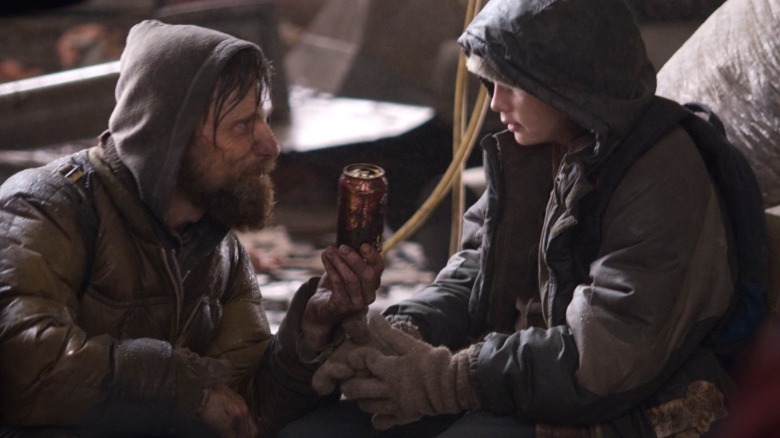
At no point should anyone volunteer to live in one of Cormac McCarthy's worlds. While many of his books feel post-apocalyptic despite their historical settings, like the bleak "Blood Meridian," "The Road" goes all-in on a dystopian future. The reasons why this Earth is shattered are beyond the knowledge of the Man (Viggo Mortensen) and his son. It doesn't matter — except in the sense that there's no redemption for it or them.
Cannibalism is common in this hellscape, as there's little left to scavenge. It feels too innocent, too improbable, to bet on the kindness of others, and even though the boy is left in the hands of a self-proclaimed "good guy" in the end, we can't know that's true. The chances of long-term survival in this world are slim to none. This is the ultimate scenario for a doomsday prepper: You have only yourself, your wits, and your resources, but in McCarthy's dead-end world, those won't save you. They'll only prolong your suffering. "The Road" is depressing to the max, and it's the clearest example yet of a dystopian world that no one should ever yearn for.
Read this next: 20 Movies About Aliens That You Definitely Need To Watch
The post Dystopian Sci-Fi Movie Worlds Ranked by How Horrible They'd Be to Live In appeared first on /Film.
0 Commentaires